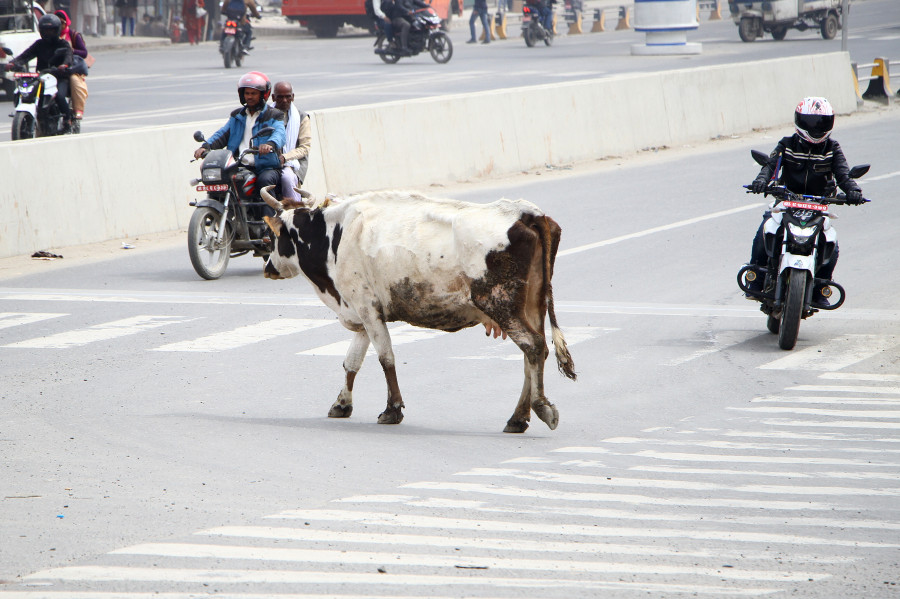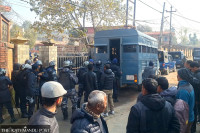Valley
Metropolis plans to keep record of domestic animals by installing chips on their body
After numerous failed attempts to drive loitering animals away from the streets, the Kathmandu Metropolitan City has come up with a plan to keep a record of domestic animals in the metropolis by fitting chips on their bodies.
Anup Ojha
After numerous failed attempts to drive loitering animals away from the streets, the Kathmandu Metropolitan City has come up with a plan to keep a record of domestic animals in the metropolis by fitting chips on their bodies.
Dhanapati Sapkota, chief of the Implementation Department at the metropolis, said his office is planning to maintain a database within the current fiscal year ending in mid-July of households that keep animals such as cows and calves.
The metropolis on Monday held a meeting with officials from Animal Nepal, a non-profit organisation that has been working to set a standard of animal welfare in the country.
“The metropolis invited us for technical support and consultancy. We’ll be helping the metropolis for the installation of chips and handling the data,’ said Joshi. The chips may be installed on the ear or neck of an animal for the monitoring of the cattle from the metropolitan office. “We will have a control room to monitor those animals,” Sapkota said.
He added that the metropolis has been consulting with other organisations as well and seeking technical consultancy to curb the problem of stray animals.
The metropolis will be mobilising all of its ward offices to take records from the households. “The metropolis had started a drive two decades ago of lifting animals from the streets and auctioning them but the problem has yet to be resolved. With this new initiative, we’ll be able to root the problem out,” said Sapkota, who was re-appointed as the chief of municipal police a month ago. He said that over 10,000 such animals have been auctioned in the past two decades.
Bishnu Prasad Joshi, former chief of the municipal police, said the reason behind the lack of progress was the metropolis not having a shelter for animals collected from the streets. “Since we don’t have a good Kanji (animal care) house, many stray animals, which were already sick, died in Teku last year,” said Joshi. Due to the animals’ ill-health, people were not interested to buy them, he added.
Sapkota, who was the municipal police chief for 12 years until 2014, is hopeful nonetheless that the new dive will be successful. Reports show that 500 animals are left on the road in Kathmandu Valley every year.
Oxen, cows that don’t give milk, and animals which are sick are usually abandoned by their owners. These animals not only occupy the road and disturb the traffic, they also cause accidents.
In response, the Metropolitan Traffic Police Division came up with a plan in consultation with municipal officials to search for the owners of abandoned cattle and fine them but not a single owner has been booked so far.




 16.12°C Kathmandu
16.12°C Kathmandu.jpg)











